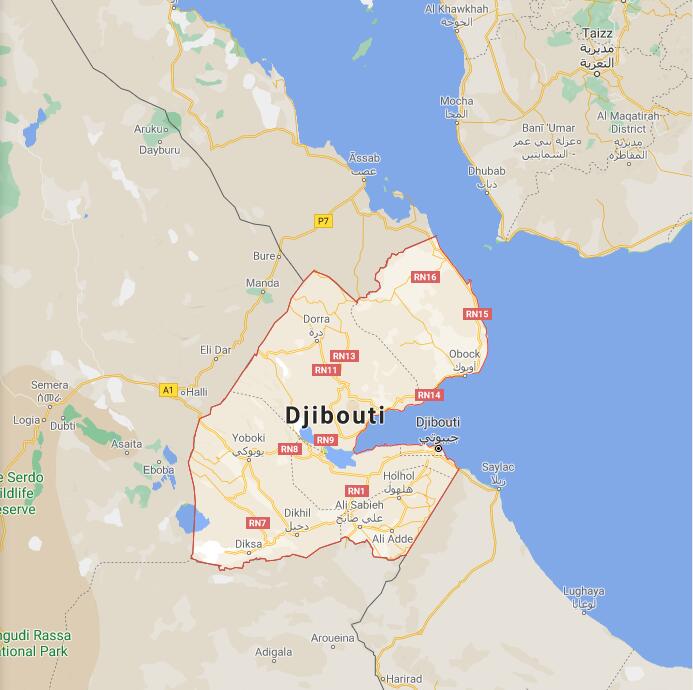
In 2003, Djibouti was a small nation located in the Horn of Africa. With a population of approximately 800 thousand people and a GDP of $1.2 billion, it was one of the poorest countries in the region.
According to computergees, the country had a semi-presidential republic with Ismaïl Omar Guelleh as President since 1999. Despite its political stability, the country faced several challenges including widespread poverty, poor infrastructure, and limited access to international markets.
The government had implemented several reforms to promote economic growth and social equality but progress was slow due to limited resources and lack of foreign investment. The political landscape in 2003 was dominated by President Ismaïl Omar Guelleh who had been in power since 1999.
Despite its political stability, freedom of speech and press were restricted due to strict censorship laws and surveillance practices. Additionally, access to free education and healthcare services were limited due to lack of resources but some progress had been made towards providing more access for citizens. Economic growth was further hindered by corruption, poor infrastructure, and lack of access to international markets.
Yearbook 2003
Djibouti. Although several new political parties had been formed since 2002, the government-friendly party alliance Union pour la majorité presidential (UMP) took home all of Parliament’s 65 seats in the January 10 election. The alliance received 63% of the vote while the opposition alliance Union pour une alternative democratique (UDA) received the other 37%. The turnout was 48%.
According to Countryaah.com, Djibouti Independence Day is June 27. President Ismail Umar Guelleh made an official visit to the United States at the end of January. spoke with President George W. Bush. The countries were close together since US special forces were stationed in Djibouti in 2002.
Great concern arose in late summer among the country’s immigrant labor force following a government decision that all illegal immigrants must leave the country by September 15. The government justified the decision that the Djiboutians themselves needed immigrants’ jobs, but judges believed that the United States demanded the expulsions as part of the fight against terrorism.
Republic of Djibouti Brief Guide
According to AbbreviationFinder, Djibouti is a small country in eastern Africa, the so-called Horn of Africa. Djibouti’s neighbors are Eritrea in the north, Ethiopia in the west and in the south, and Somalia in the east. Formerly known as French Somaliland.
Climate
The climate in Djibouti is mainly hot and dry. Humidity is high. Most rainy days are in January, but the accumulated rainfall is still lower than in October or November. In April, the rainfall is the highest. The highest temperature ever measured in the capital of Djibouti is 46 degrees. For example, between July and August, there are no average days below 29 degrees. In the highest areas of the country, the temperature drops markedly.
Religion: Almost the entire population is Muslim (94-99%), but a small minority of Christians live in the country.
Food & beverage
African food is quite simple but tasty and spicy. A lot of different vegetables, fruits and cereals are used. Examples used are tomatoes, peppers, onions, okra, sweet potatoes, yams, cassava, corn, bananas, mangoes, papayas and citrus fruits. Popular spices include basil, coriander, cumin, cloves, cinnamon, ginger and chili. Drinking tap water is not recommended. All water and beverages must be industrially bottled. Salads and vegetables should also be rinsed with bottled water. Heated or tablet-purified water can be drunk. The food should be heated or cooked. Reheated foods and seafood should be avoided.
HUMAN AND ECONOMIC GEOGRAPHY
East African state. The demographic dynamics of the population, which at a 2005 estimate was 793,000 residents, is characterized by a low annual growth coefficient, especially considering that the fertility rate (5.4 births per woman) is among the highest in the world. This is mainly due to infant mortality and particularly difficult living conditions. The most important economic activities are linked to the free port of Djibouti and the military bases of France and the United States. In 2005 the new port of Doraleh came into operation, located about ten kilometers from the capital, which will be equipped, by 2007, the largest container terminal in the region and a 400-hectare free zone.